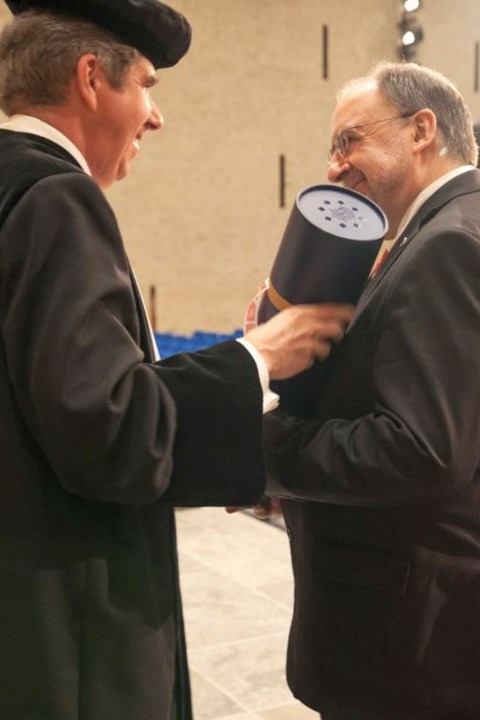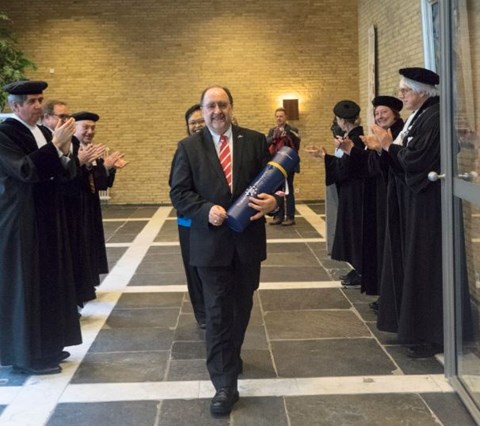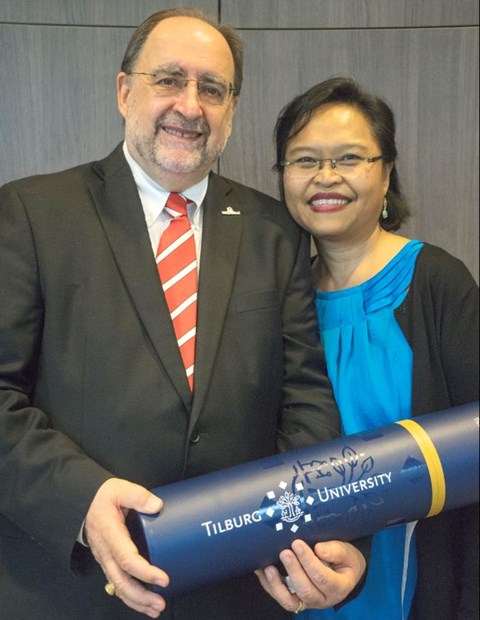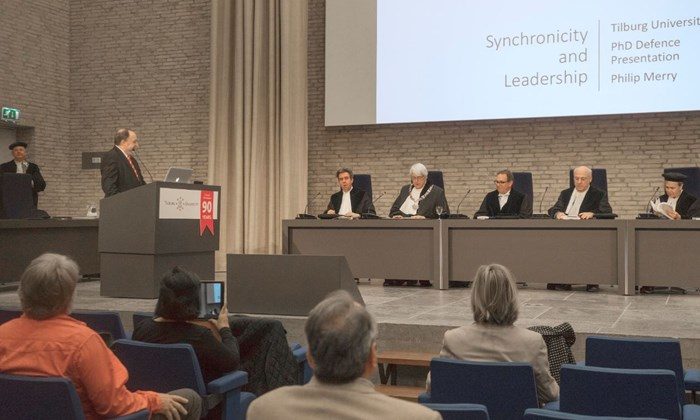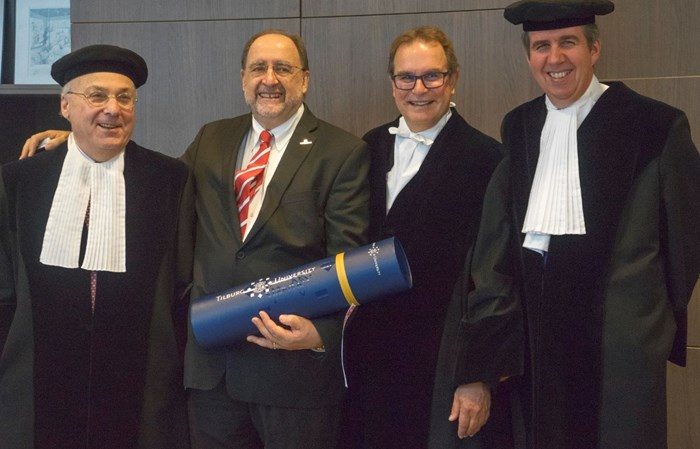Philip Merry
Dissertation Title:
Synchronicity and Leadership
Tilburg University
December 2017
Abstract:
Synchronicity is the experience of having something or someone turn up in one’s life which seems to give meaning to current questions or issues and is an experience common to many people. It is a phenomenon that is often described as “luck”, “coincidence”, “fate” or “chance”, and was the subject of extensive research and writing by the psychotherapist Carl Jung who first used the word. While much has been written anecdotally about synchronicity in the personal domain, i.e. how it influences the choice of partner, location of a new residence, or indications of health, there is very little written about synchronicity in the leadership domain, which makes it a fertile area for research. It is the contention of the research that synchronicity does, in fact, happen to leaders, but because of the dominance of the Newtonian logical paradigm in the workplace, the voice of synchronicity is muffled.
The research uses a grounded theory approach (Gioia D. 2012) to conduct fieldwork with a group of 18 international leaders in Ethiopia and with seven leaders of 6 nationalities from 3 continents (USA, Europe and Asia) comprising three women and four men. The fieldwork explores their experience of synchronicity, spanning needs, definition, process, factors that facilitate, business results and personal transformations that come from synchronistic events.
Using participant data and the author’s own extensive experience of the phenomenon a holistic, dynamic model of synchronicity is built identifying the flow of synchronicity from individual needs, to out of the blue events and the results they bring, to looking at the long term benefits of a life of synchronicity.
Various domains of literature (psychology, quantum physics, biology, spirituality, complexity, adult education) are explored to identify writers, models or mentions of synchronicity that link to ideas generated in the field work.
This is the first research on synchronicity and leadership using grounded theory, and the potential benefits are that it could point the way towards developing a link between synchronicity and leadership. A new potential tool Synchronistic Inquiry (SI) is explored that could help identify openness to synchronicity.
I am interested in this topic because of the potential benefit that synchronicity could bring to leaders in helping them find answers to the important leadership issues of the 21st century.

